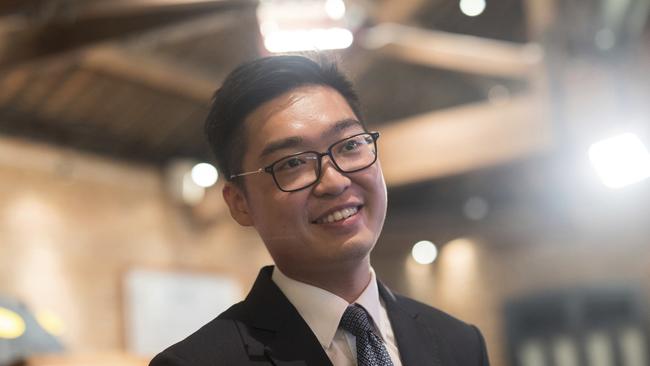Hong Kong bans independence party
Hong Kong yesterday banned the two-year-old National Party, which advocates independence from China.

Hong Kong yesterday banned the two-year-old National Party, which advocates independence from China.
It is the first such ban in Hong Kong, which has been a special administrative region of China since Britain handed it back to Beijing in July 1997.
Security Minister John Lee Ka-chiu said he was banning the party on the grounds of “national security”.
Mr Lee accused the party, founded in 2016 by Andy Chan, of spreading “hatred and discrimination” against people from mainland China in Hong Kong.
“(Mr Chan) publicly said China is Hong Kong’s coloniser and mainlanders are the enemy of Hong Kong people,” he said.
Mr Lee said Mr Chan had “advocated negativity and hostility” against people from mainland China.
He could not ignore the threat the party posed to public safety and order in Hong Kong.
He said some people might worry about the implications of the move for freedom of assembly in Hong Kong, but he said the freedom of residents was “not without limits”.
Mr Chan branded Beijing as Hong Kong’s coloniser during a speech last month to the Foreign Correspondents Club. During his address, pro-Beijing protesters gathered outside the club and the Chinese Foreign Ministry accused the FCC of abusing Hong Kong’s right to free speech by giving Mr Chan a platform.
The move will be seen by some as a further clampdown on freedoms in the former British colony, which operates under “one country, two systems”.
Mr Lee said the Nationalist Party had been planning to recruit members, infiltrate schools and set up street booths to muster support for its goals.
The ban means anyone who associates with the party, including participating in gatherings and financially supporting it, could be liable to fines and a possible jail sentence of two to three years.
Mr Chan told local media yesterday he would not comment on the ban at the moment.
Human Rights Watch called the ban “a milestone in the Beijing and Hong Kong governments’ assault on Hong Kong’s freedoms”.
Mr Lee’s justification that the move was pre-emptive, even though the group had not committed violent acts, set a “dangerous precedent” that could see more pro-democracy groups banned, said HRW’s senior China researcher Maya Wang.
Police requested the party ban in July under the Societies Ordinance, which stipulates groups can be prohibited in the interests of national security and public safety. Activists calling for Hong Kong’s independence from China emerged after mass Yellow Umbrella pro-democracy rallies in 2014 failed to win reforms.



